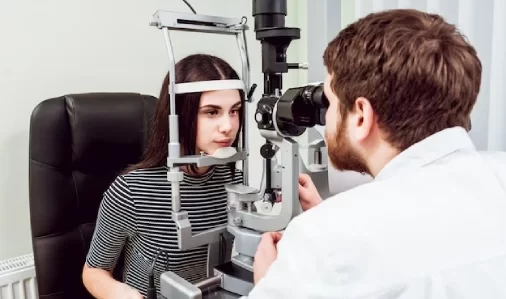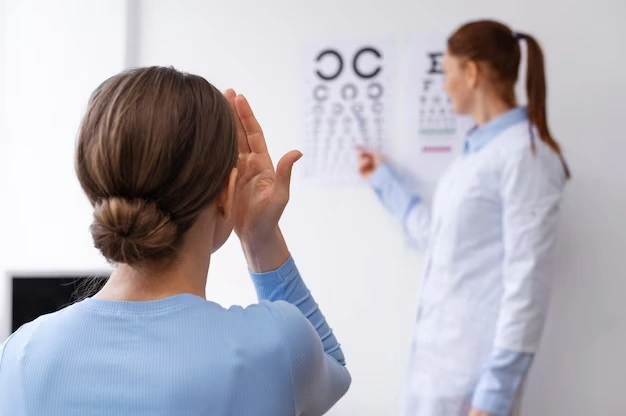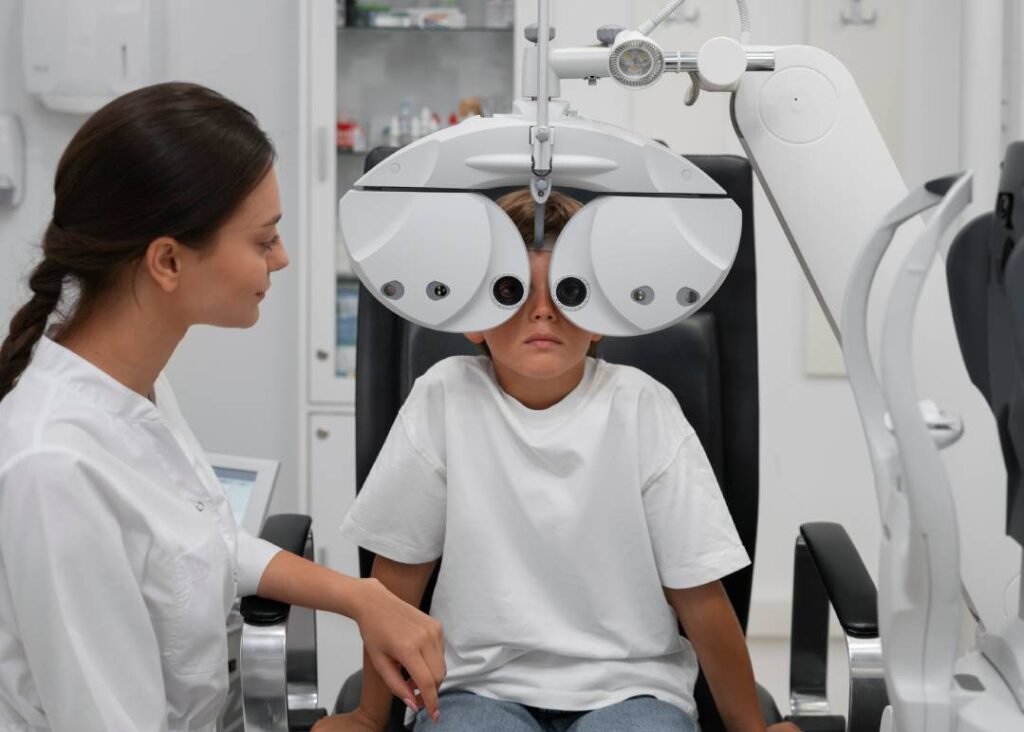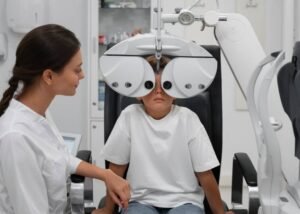Maintaining good eye health is essential for overall well-being and quality of life. Regular eye examinations Play a crucial role in detecting and addressing various eye conditions, preventing vision loss, and promoting optimal eye health. However, when it comes to eye exams, there are two main options: vision screening and comprehensive eye check-ups.
Understanding the difference between these two approaches is vital for making informed decisions about your eye care. In this blog, we will explore the distinctions between vision screening and comprehensive eye check-ups, their respective benefits, and how you can choose the right option to safeguard your vision and eye health.
- Vision Screening: A Brief Overview
Vision screening is a simple and quick assessment of your visual acuity, usually performed by school nurses, pediatricians, or other healthcare professionals. The primary objective of vision screening is to identify individuals who may have potential vision problems, such as refractive errors (e.g., nearsightedness, farsightedness) or amblyopia (lazy eye). It typically involves reading an eye chart to assess your distance vision, and in some cases, near vision. Vision screenings are often conducted in schools, workplaces, or during routine medical check-ups.
- Comprehensive Eye Check-Ups: A Thorough Examination
On the other hand, comprehensive eye check-ups are in-depth evaluations performed by eye care professionals, such as optometrists or ophthalmologists. These examinations go beyond simple visual acuity tests and encompass a comprehensive assessment of your overall eye health.

A typical comprehensive eye check-up includes the following components:
- Visual Acuity Test: Assessing your ability to see letters and numbers on an eye chart at various distances.
- Refraction Test: Determining the prescription needed to correct any refractive errors.
- Pupil Examination: Evaluating the size and response of your pupils to light.
- Visual Field Test: Detecting any peripheral vision loss or other abnormalities.
- Intraocular Pressure Measurement: Evaluating the pressure inside your eyes to screen for glaucoma.
- External and Internal Eye Examination: Examining the structures of your eyes, including the cornea, iris, lens, and retina.
- Slit-Lamp Examination: Using a special microscope to assess the health of your eyes’ anterior and posterior segments.
- Dilated Eye Exam: Widening your pupils with eye drops to get a better view of the retina and optic nerve.
- The Importance of Comprehensive Eye Check-Ups
Comprehensive eye check-ups offer several distinct advantages over vision screenings:
- Early Detection of Eye Conditions: Comprehensive eye check-ups can detect various eye conditions and diseases in their early stages, allowing for prompt treatment and better outcomes.
- Detailed Assessment: A thorough examination provides a detailed evaluation of your eye health, helping eye care professionals identify issues that may not be evident during vision screenings.
- Personalized Eye Care: Comprehensive eye check-ups cater to your specific needs, considering factors such as age, medical history, and lifestyle to offer personalized eye care recommendations.
- Glaucoma and Cataract Screening: Comprehensive eye check-ups include screenings for conditions like glaucoma and cataracts, which may not be covered in vision screenings.
- Management of Chronic Eye Conditions: For individuals with existing eye conditions or chronic diseases affecting the eyes, comprehensive eye check-ups are essential for ongoing management and monitoring.
- When to Choose Vision Screening
While comprehensive eye check-ups are recommended for regular eye care, vision screenings can be appropriate in certain situations:
1. School-Aged Children: Vision screenings are often conducted in schools to identify vision problems in children. If a child fails the vision screening, a comprehensive eye check-up is typically recommended for a more detailed evaluation.
2.Workplaces: Some employers may conduct vision screenings as part of occupational health assessments, particularly for jobs that require good vision.
3.Routine Check-Ups: Vision screenings can be part of routine medical check-ups, especially for adults without known eye problems or risk factors.
- Making the Right Choice for Your Eye Health
When deciding between vision screening and comprehensive eye check-ups, consider the following factors:
- Age and Risk Factors: If you or your child have specific risk factors for eye conditions, such as a family history of eye disease, diabetes, or previous eye injuries, a comprehensive eye check-up is recommended.
- Eye Health History: If you have previously been diagnosed with an eye condition or have experienced changes in your vision, a comprehensive eye check-up is crucial for ongoing management.
- Visual Symptoms: If you or your child experience visual symptoms like blurry vision, eye strain, double vision, or headaches, a comprehensive eye check-up is essential to determine the cause and receive appropriate treatment.
- Frequency of Examinations: The American Academy of Ophthalmology recommends comprehensive eye exams as follows: once between ages 20 and 29, twice between ages 30 and 39, and at least every two to four years between ages 40 and 64. After age 65, annual eye exams are recommended.
Both vision screenings and comprehensive eye check-ups have their place in eye care, but they serve different purposes. While vision screenings can quickly identify potential vision problems, comprehensive eye check-ups offer a more thorough evaluation of your eye health, helping detect and manage a wide range of eye conditions.

To safeguard your vision and overall eye health, it is essential to schedule regular comprehensive eye check-ups, especially if you have risk factors or experience visual symptoms. Consult with an eye care professional to determine the best approach for your individual eye care needs and ensure a lifetime of healthy vision. Remember, your eyes are precious, and proactive eye care is the key to maintaining clear and healthy vision for years to come.
Discover the importance of Comprehensive Eye Check-Ups for safeguarding your vision and eye health. From early detection of eye conditions to personalized eye care, find out how these thorough examinations benefit your overall well-being. Schedule a comprehensive eye check-up today for a lifetime of clear and healthy vision.




